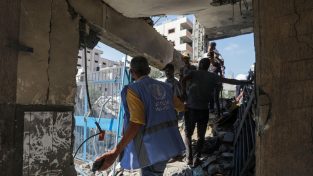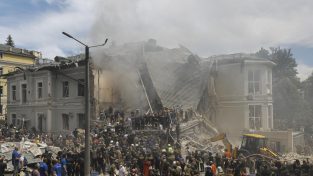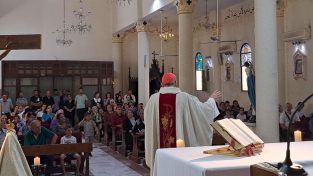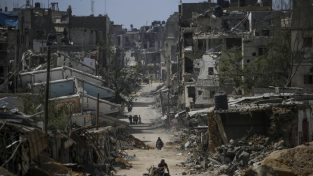L’Onu istituisce la Giornata di commemorazione del genocidio di Srebrenica per l’11 luglio
Le Nazioni Unite hanno approvato una risoluzione che condanna la negazione del massacro del 1995 in cui furono assassinati 8 mila uomini e ragazzi bosniaci musulmani
Giovedì 23 maggio l’Assemblea generale delle Nazioni Unite ha approvato l’istituzione dell’11 luglio come Giornata internazionale di commemorazione del genocidio di Srebrenica, in Bosnia ed Erzegovina. La decisione è arrivata dopo una votazione alquanto divergente: 84 voti a favore, 19 contrari e 68 astensioni.
La risoluzione, presentata dalla Germania e dal Ruanda, contempla la condanna della negazione del massacro perpetrato dalle forze serbo-bosniache a Srebrenica durante la guerra dei Balcani, che determinò la morte di 8 mila bosniaci. Inoltre, chiede che i responsabili ancora in libertà vengano consegnati alla giustizia, e che vengano trovate le vittime ancora non individuate.
Il presidente serbo Aleksandar Vucic si è mostrato contrario alla risoluzione dell’Onu, che – ha affermato – «causerà instabilità nella regione» e «riaprirà vecchie ferite». Da parte sua, il presidente della Repubblica Serba di Bosnia ed Erzegovina (una delle due che compongono la Bosnia ed Erzegovina) Milorad Dodik ha affermato «che non c’è stato alcun genocidio», nel tentativo di difendere la Serbia dall’attribuzione del crimine. Tuttavia, quello di Srebrenica è stato dichiarato genocidio dalla Corte internazionale di Giustizia già nel 2007 e successivamente dal Tribunale penale dell’Aja per i crimini di guerra nell’ex Jugoslavia.
Anche la Russia ha contestato la decisione delle Nazioni Unite, e il suo ambasciatore Vassily Nebenzia ha accusato gli occidentali di “serbofobia”. «L’approvazione della risoluzione è tanto più importante – ha affermato l’alto commissario delle Nazioni Unite per i diritti umani, Volker Türk – se si considerano i tentativi di negare la realtà storica e i discorsi d’odio di alcuni leader politici della regione».
(Foto Ansa)






















